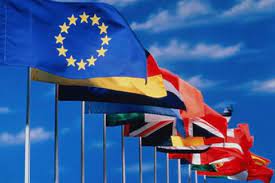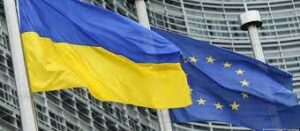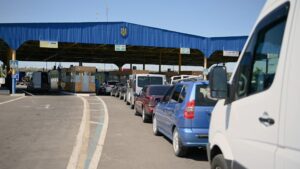
The EU countries have not yet been able to agree on the upper limit of duty-free imports of Ukrainian grain, as well as the need to extend restrictions to other products from Ukraine, the German edition of n-tv reported. “In the debate on the upper limit of duty-free imports of Ukrainian grain, the 27 EU countries continue to disagree,” the publication said.
The German media cite information from European diplomats who say that there is also no clear majority among member states on the European Parliament’s proposal to extend the restrictions on poultry meat, eggs and sugar from Ukraine proposed by the European Commission in January.
Polish Radio’s correspondent in Brussels, Beata Plomecka, also confirmed that the European Parliament, influenced by farmers’ protests across Europe, last week backed an amendment to the regulation on Autonomous Trade Measures submitted by Polish MEP Andrzej Galicki.
MEPs agreed to impose import restrictions on sensitive goods, notably honey, a range of cereals, poultry meat, chicken eggs and sugar.
Poland is also lobbying to tighten import quota requirements for Ukrainian sensitive agri-commodities by using data on Ukrainian imports not only for the years 2022-2023, but also 2021, before Russia’s full-scale invasion, when there were no massive shipments of agricultural products from Ukraine.
“However, this support is absent among member states. Only Poland and the ‘frontline’ countries are demanding that the demands of the European Parliament be taken into account. At best, most countries want to reduce from three weeks to two the Commission’s mandate to impose a ban on EU imports of products whose imports destabilize the market situation,” Polish Radio stressed.” Negotiations on a possible restriction of imports of Ukrainian agricultural products in the European Council are scheduled for Tuesday evening.
As reported, in many EU countries since January 2024 there have been mass protests of farmers, who express dissatisfaction with the “green” course of the European Commission and the rise in the price of material and technical resources. One of their demands is to strengthen control over alleged unfair competition from Ukraine. Farmers claim that Ukrainian products that were once destined for Africa or the Middle East now remain in Europe, undermining the position of local producers. They also point out that Ukrainian producers are not subject to the EU’s higher environmental and social standards.

Ambassadors of the European Union member states have approved the allocation of 5 billion euros of military aid for Ukraine under the European Peace Facility.
The decision was taken on Wednesday in Brussels on the sidelines of a meeting of the Committee of Permanent Representatives, the Belgian Presidency said on its social media page X.
“A deal! EU ambassadors agreed in principle to reform the European Peace Facility to support Ukraine with a €5 billion budget for 2024. The European Union remains determined to provide long-term support to Ukraine and to ensure that the country receives the military equipment it needs to defend itself,” the presidency said.

Passenger traffic from the EU countries and Moldova to enter Ukraine on April 16 for the first time since the start of the war by Russia exceeded the flow to exit, the State Border Service of Ukraine reports. The day before, for the first time since February 24, a similar fact was recorded on the Polish-Ukrainian section of the border.
According to the agency on Facebook, on April 16, a record high number of people again entered Ukraine – more than 38 thousand compared to more than 36 thousand the day before, including Ukrainians – 35 thousand compared to 32 thousand on Friday.
At the same time, the flow in the opposite direction decreased to more than 32,000 from almost 38,000 a day earlier.
The agency also clarified that over the past day, the number of registered vehicles with humanitarian cargo increased to 500 from 420-425 in the previous two days.
According to the data of the Polish border service on Twitter, on April 16, 22 thousand entered Ukraine from the country against 25.1 thousand the day before.
In the opposite direction, the flow amounted to 19.2 thousand, which is 21% less than on April 15, and over the first 7 hours of Sunday it fell by another 22.5% to 4.2 thousand.
According to UNHCR data, as of 13:00 on April 15, a total of 4.84 million people have left Ukraine since the beginning of the war (excluding the entry flow), of which Poland received 2.74 million, Romania and Moldova – 797.31 thousand, Russia – 484.73 thousand, Hungary – 454.1 thousand, Slovakia – 332.71 thousand, Belarus – 22.83 thousand.

The flow of citizens crossing the border of Ukraine with the EU countries and Moldova is decreasing, adviser to the Minister of Internal Affairs Volodymyr Denysenko said.
“The flow of citizens at the border of Ukraine with the EU countries and Moldova continues to decrease. The level of workload at checkpoints has also decreased significantly,” Denysenko said in a video message distributed on Thursday.
According to him, over the past 12 hours, the number of cars waiting to cross the border has decreased from approximately 3,900 to 1,425 cars, and the queue of pedestrians is 30-50 people.
Among the busiest, Denysenko noted, were checkpoints Shehyni and Krakovets.

JSC Ukrzaliznytsia in 2020 transported more than 40 million tonnes of cargo to the countries of the European Union, 10 million tonnes of which were transportation to Poland and back.
As the Ukrzaliznytsia’s press service of said on Friday, exports to the EU countries, in particular, amounted to almost 29 million tonnes, imports almost 4 million tonnes, and transit about 7.5 million tonnes.
Poland, Slovakia, the Czech Republic, Italy and Romania are included in the top 5 EU countries in terms of cargo transportation by Ukrzaliznytsia.
Ukrzaliznytsia also noted an increase in transportations to and from Romania by 21.2%, to almost 4 million tonnes in 2020.
As reported, Ukrzaliznytsia transported in December 2020, according to recent data, 26.65 million tonnes of cargo in all routes, which is 7.4% more than the same period in 2019.